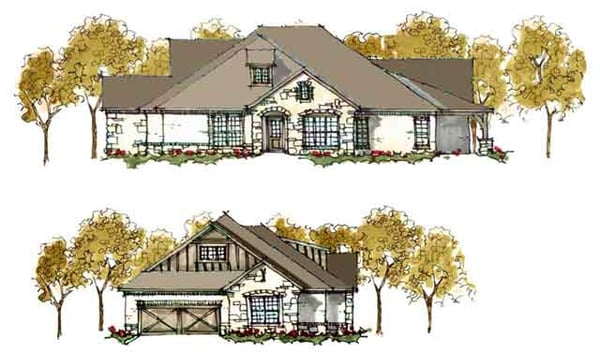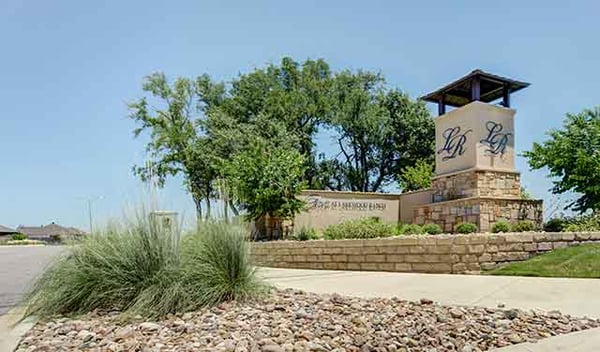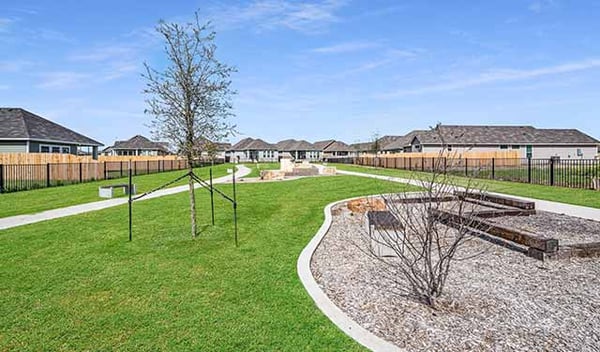Omega Builders can help buyers understand homeowner associations (HOAs) and what they do for a community. Buying a home in a master-planned community often means becoming part of a Homeowners Association (HOA). While HOAs sometimes get a bad reputation, their purpose is straightforward: to preserve and enhance property values for every homeowner.
What Are HOA Rules?
HOA Covenants, Conditions & Restrictions (CC&Rs)
You may hear terms like HOA Restrictions, Covenants and Restrictions, or HOA CC&Rs.
All of these refer to the legal documents that outline:
-
Architectural guidelines
-
Community maintenance standards
-
Homeowner responsibilities
-
Usage rules for shared spaces and amenities
These rules form the operational and visual foundation of the community. These are the rules that homeowners agree to abide by when purchasing a home within a community with an HOA.
The Role of an HOA in a New Community
How HOAs Are Established
Before construction begins, builders and developers collaborate to understand the vision for the neighborhood. This includes:
-
Lot design and floor plan compatibility
-
Architectural requirements
-
Approved materials and home features
These standards are written into the community restrictions - and from those restrictions, the HOA is established.

What an HOA Actually Does
Beyond enforcing lawn care or pool maintenance, an HOA helps ensure:
-
Architectural consistency
-
Well-maintained common areas
-
Clear expectations for all homeowners
-
Long-term protection of property values
Most HOAs operate as not-for-profit organizations governed by a board of directors. Early in a community’s life, the board is often made up of developer or builder representatives. As the neighborhood grows, leadership transitions to the residents.
Professional Management
Many communities hire a management company to assist with:
-
Collecting dues
-
Enforcing community rules
-
Maintaining landscaping and amenities
-
Managing communication between the HOA and residents

Top 3 misconceptions about HOAs
1. “HOAs Are Expensive and a Waste of Money”
There are typically three types of HOA fees:
-
Initial enrollment fee - paid when you purchase a home
-
Annual dues - covering maintenance and amenities
-
Transfer fee - paid when the home sells
In the communities we build, annual dues range from $80 to $600, depending on available amenities. These dues cover items such as:
If you want to live in a community with a swimming pool, then your annual dues will reflect the price of building/maintaining the pool. Maintenance for other common areas like the entrances, playgrounds, greenspaces, and trails are just a few of the items covered by your fees.
2. “HOAs Don’t Allow RVs or Boats”
While many HOAs restrict long-term parking of RVs or boats in driveways or streets, this doesn’t mean you can’t own them. Secure storage options — including covered and climate-controlled facilities — are widely available.
These rules originally aimed to reduce theft and protect personal property, not limit lifestyle choices.
3. “HOAs Serve No Real Purpose”
Neighborhood appearance is often the first thing buyers notice. Without an HOA:
-
Architectural standards may decline
-
Common areas may deteriorate
-
Property values may suffer
According to the 2024 Homeowner Satisfaction Survey by the Community Associations Institute:
-
86% of residents rate their overall HOA experience as good, very good, or neutral
-
82% of residents say their board serves the best interest of the community association

Benefits of Living in an HOA Community
Choosing a new home in an HOA community can enhance your living experience through:
-
Consistent neighborhood appearance
-
Clearly defined expectations
-
Long-term property value protection
-
Access to amenities like:
Without an HOA, many of these features simply wouldn’t exist.
Final Thoughts
Avoiding communities simply because they have an HOA could mean missing out on your ideal home or neighborhood experience. Review the HOA rules and restrictions early in your home search — understanding them helps you make an informed and confident decision.





